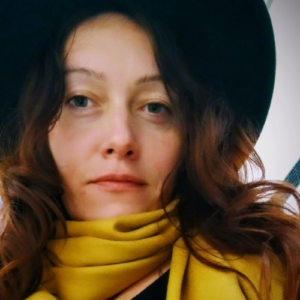What is ALS / MND?
Amyotrophic lateral sclerosis (ALS), also known as Lou Gehrig’s disease, is the most common form of motor neuron disease (MND). These terms are often used interchangeably.
Motor neurons are the nerve cells with a special mission: they convey messages from the brain to the spinal cord and then to the voluntary muscles in one’s body. “Voluntary” are the muscles we normally can control at will: for example, when flexing our fingers, raising our hands, chewing, speaking, walking or dressing.
When someone has ALS, protein clumps build up in these nerve cells, causing their death. We do not know why it happens, but, because of this, the messages from the brain cannot be conveyed to the muscles as they should: the signal simply doesn’t come through or comes severely distorted. Muscles stop working properly. This forced inactivity eventually leads to muscle wasting, which, in turn, makes it increasingly difficult for the person with ALS to perform regular daily activities and to take care of themselves.
How it starts
The onset of ALS / MND is subtle and very gradual. One may first notice unusual clumsiness, hand or leg weakness, usually on one side, problems with balance, random muscle twitches or stiffness. Some may experience shortness of breath or choking on food more often. Speech may start sounding slurred and nasal. For one of my patients it started with an unusual drag in the voice, minor, but irritating.
As the disease progresses, mundane tasks like typing, buttoning a shirt or cutting vegetables for dinner may become increasingly challenging. Standing or walking without support may pose a challenge. Increased salivation may occur as another unwelcome and embarrassing sign of the disease.
There is no specific diagnostic test for ALS / MND. A physician may suspect the disease from the combination of symptoms and refer the patient to a neurologist who usually provides the conclusive diagnosis. If the disease shows itself first through hand or leg weakness, it is called “limb onset” ALS / MND. If speech and swallowing are affected, it is called “bulbar onset”. “Bulb” is an archaic term for medulla oblongata, a part of the brain responsible for carrying messages between the brain and the body.
“Never Give Up On Yourself”
ALS affects over 400,000 persons in the world, and this number is growing, but it wouldn’t be much of an overstatement to say that each case is unique in its progression. This is not just a figure of speech. Unpredictable forms and timeframes of its progression make ALS / MND one of the most difficult conditions to research. Prognoses can be made, treatments and care arrangements must be considered, but ALS is always full of surprises.
The average lifespan of a person with ALS is about 3 – 5 years from diagnosis. However, we all have heard about a British scientist who lived with the condition for 55 years, during which time he became published academic works that defined the modern field of astrophysics, authored multiple popular books for adults and children, became a guest vocalist on two Pink Floyd’s albums, married and divorced two times and experienced four minutes of zero gravity on board of a space shuttle despite the US’s Federal Aviation Administration’s disapproval. When Steven Hawking was diagnosed with ALS at the age of 21, doctors gave him a two-year life expectancy.
It is true that ALS / MND is merciless. Regardless of the onset, the disability eventually spreads through the whole body, stealing one’s ability to move, speak, eat and breathe independently. The loss of function can happen in the matter of months or in the matter of several years. Interestingly enough, voluntary eye movement, including blinking, never goes away. For some persons diagnosed with ALS this becomes a gateway to a new way of life – the life where bodily disability doesn’t prevent one from fulfilling a greater purpose.
An American composer and virtuoso guitarist Jason Becker was 20 when he was diagnosed with ALS in 1989. He lost the ability to speak by 1996, but he continues to compose music using his computer. He has collaborated with Paradise Guitars, Carvin Guitars and Kiesel Guitars manufacturers to design new models of guitars, made guest appearances on other musicians’ videos and was featured in a documentary “Jason Becker: Not Dead Yet”, as well as books and mass media interviews. His latest album “The Triumphant Hearts” was released in 2018. “Never Give Up On Yourself” is the motto he continues to live by.
It Is OK Not To Be OK
Stephen Hawking and Jason Becker are exceptional examples of the human spirit reign over the limitation of the body. But one doesn’t have to be a celebrity to persevere. I have met “perfectly normal” folks of all ages who went on to do what mattered most for them, despite the ALS / MND diagnosis. A maths teacher tutoring her young students. A lawyer continuing to work on meaningful cases. A mother and a wife staying the heart and the joy of her household. A grandpa writing his life story for his grandchildren and taking pride in watching them grow.
There is no cure for ALS, but supportive therapies can increase the lifespan and affect the quality of one’s life. 20% of those diagnosed with ALS survive for over 5 years, 10% live longer than 10 years, and 5% live for 20 or more years. Keeping up bright spirits is helpful along the way. But what if you can’t?
Let us be real: not everyone is born a warrior. ALS is a devastating, challenging disease at every step of the way. A scary one. An unfair, hope-crushing, mind-bending one. And it is ok to feel sad. It is ok to feel overwhelmed. It is ok to feel angry. It is ok not to feel ok when you have ALS.
There is so much to take care of. There are drugs to consider and paperwork to fill. There are tough choices to be made, all of them urgent. Would you like to bank your voice to use it later in computer-facilitated communication? What kind of blender do you need to make your food easier to swallow? How do you brush your teeth, bathe, change clothes? How do you feel about introducing non-invasive mechanical ventilation? Is it really time to start using a wheelchair? When do you tell your children?
These are very personal, no one-size-fits-all decisions, there are too many of them. Add to these physical and mental fatigue, regular visits to the clinic, constant adjustment to the changes in your body, difficulty sleeping, uncertainty of the prognosis, grieving the future as you imagined it before the diagnosis… Feeling low is only normal in these circumstances and should be the least of your concerns, right?
Wrong.
Mental health of those living with ALS / MND are, unsurprisingly, often overlooked and undertreated. Meanwhile, clinical depression is prevalent in ALS and, if left untreated, has a detrimental effect on survival and quality of life. Anxiety may skyrocket immediately after the diagnosis and then later, when getting used to breathing through a ventilation mask. Anxiety and depression are not signs of personal weakness, but rather a comorbidity – a set of symptoms to go hand in hand with other manifestations of ALS. They are not “just in your head” – they are in your body, too, making your heart race, making your hands shake, making you unable and unwilling to start another day, challenging your spirit.
But know what? You do not need to take on this challenge all by yourself. Anxiety and depression are very common, treatable conditions. Make sure to let your medical team know how you feel. There is help. There are medications. There is talk therapy. And, the sweetest of the prescriptions, there is music.
This is an excerpt from my upcoming book "Music Therapy for ALS / MND: A Self-Care Guidebook". Kindly consider supporting or sponsoring this work if you have a chance. And, please, contact me if you have any questions or insights about music therapeutics for persons and families affected by ALS / MND.

